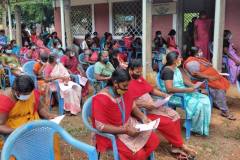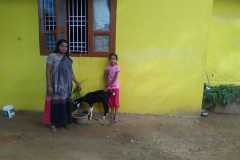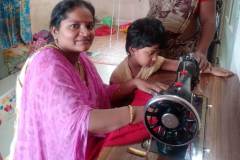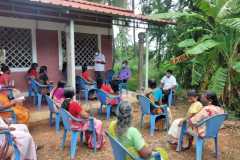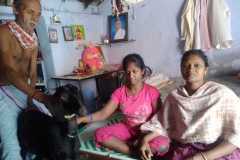Core Programmes
Core Programmes
Corona Relief Activities
The global corona pandemic had its severe impact in our area too. The economy in the rural and remote areas was shattered and the income of the families came down drastically. As the lock downs continued for longer times with varying restrictions and relaxations, life was never smooth and predictable for about two years.


| Raw food ration to 50 families for six months |
| Financial support for three months to 20 families of children with special needs |
| Dresses and play materials to 75 children from children’s homes |
| Free transportation for 12 children for three years |
| Goats for 5 families |
| Community awareness programme on Corona – 10 events covering about 250 people |
| Sewing machine to one family |
The schools were closed and the children with special needs had difficulties in accessing regular therapies. Further the paying capacity of the families came down. So Pro-Vision decided to support the families with children with special needs in different ways.
Pro-Vision co-ordinated with different agencies and mobilised resources to support the poor families in and around the project area. The families of children with special needs were provided with free raw food ration for six months.

The children were given with play toys to facilitate home based interior recreations. The children staying in the nearby children’s home were given two sets of new dresses.
In addition, considering the pandemic situation, community awareness programmes were conducted in the vicinity. The women from Virusady colony were given awareness on prevention of corona and also supplied with corona preventive kit with traditional immunity booster materials and food grains that enabled them to improve their immune power and prevent corona.

With the financial support of Spill Helpt, Pro-Vision took efforts to identity the most deserving families and helped them with a long-term view in mind, as to enable them with supplementary income which could help the children to have regular therapy.
Supported by Stichting Jeugdwelzijin Zuid-India, The Netherlands, a four-wheeler was bought to pick up children from their homes for therapy and drop them back in their homes in the evening after therapies. Every day about 10 children benefit from the pick up vehicle.
This really helps the children to access therapies regularly and enables the families to concentrate income generating activities also. Further it saves them from the travel expenses to be spent to access therapies for their children. The families were so happy and hope it will help them in some way to improve their economic status and enable the children to develop their potentials.

In the coming years more efforts would be taken to reach out the community with outreach camps and assessments.





